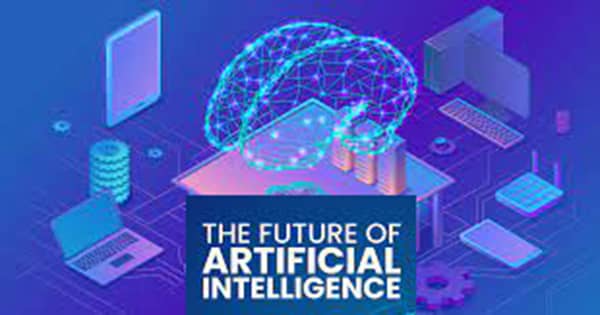Popular Blog BD / Abdur Rahman
The future of AI is marked by rapid advancements in machine learning and the rise of explainable AI, enhancing transparency and trust. Seamless integration into daily life, particularly in healthcare and smart cities, will revolutionize living standards. Ethical considerations and robust governance frameworks will be crucial to mitigate risks like data privacy and algorithmic bias. AI’s socio-economic impact will reshape the labor market, emphasizing the need for upskilling and inclusive development to harness its full potential.
Artificial Intelligence (AI) is not just a technological advancement; it is a transformative force shaping various sectors of society and the global economy. As AI continues to evolve, it is poised to bring about significant changes that will redefine industries, labor markets, and even our daily lives. This essay explores key trends and predictions for the future of AI, focusing on advancements in machine learning, the integration of AI in everyday life, ethical considerations, and the potential socio-economic impacts.
Advancements in Machine Learning and AI Models
Machine learning, a subset of AI, has witnessed remarkable progress, particularly with the development of advanced neural networks and deep learning techniques. These advancements have enabled AI systems to achieve unprecedented levels of accuracy in tasks such as image and speech recognition, natural language processing, and predictive analytics. Future trends suggest an increase in the complexity and capability of AI models. Quantum computing, for instance, holds the promise of exponentially enhancing AI’s processing power, allowing for the solving of complex problems that are currently beyond reach.
Furthermore, the development of explainable AI (XAI) is gaining traction. As AI systems become more sophisticated, understanding their decision-making processes becomes crucial, especially in critical areas like healthcare and finance. XAI aims to make AI models more transparent and interpretable, fostering trust and facilitating better human-AI collaboration.
Integration of AI in Everyday Life
AI is increasingly becoming an integral part of daily life, with applications ranging from virtual assistants and smart home devices to personalized recommendations and autonomous vehicles. In the future, the seamless integration of AI into everyday activities will be more pronounced. Smart cities, for example, will leverage AI to optimize traffic management, energy consumption, and public services, enhancing urban living standards.
Healthcare is another sector where AI’s impact will be profound. AI-powered diagnostic tools and personalized treatment plans are set to revolutionize medical practice, improving patient outcomes and reducing healthcare costs. Additionally, wearable AI devices will monitor health parameters in real-time, providing early detection of potential health issues and promoting preventive care.
Ethical Considerations and AI Governance
As AI continues to permeate various aspects of society, ethical considerations and the need for robust governance frameworks are becoming increasingly important. Issues such as data privacy, algorithmic bias, and the potential misuse of AI technologies pose significant challenges. Ensuring that AI systems are developed and deployed responsibly will be crucial in mitigating these risks.
The future will likely see the establishment of comprehensive regulatory frameworks aimed at overseeing AI development and implementation. These frameworks will focus on ensuring transparency, accountability, and fairness in AI systems. Moreover, there will be a growing emphasis on international cooperation to address the global implications of AI, fostering a collaborative approach to AI governance.
Socio-Economic Impacts
AI’s impact on the labor market is a topic of significant debate. While AI has the potential to automate routine tasks, leading to job displacement in certain sectors, it also creates opportunities for new job roles that require human-AI collaboration. The future workforce will need to adapt to this changing landscape, with a focus on acquiring skills that complement AI technologies.
Education and training programs will play a pivotal role in preparing individuals for the AI-driven economy. Lifelong learning and upskilling initiatives will become essential to ensure that the workforce remains competitive and resilient in the face of rapid technological changes. Additionally, AI can be leveraged to personalize education, tailoring learning experiences to individual needs and enhancing educational outcomes.
AI and Global Development
AI has the potential to drive significant progress in addressing global challenges such as climate change, poverty, and healthcare disparities. AI-powered analytics can optimize resource allocation, enhance agricultural productivity, and support disaster response efforts. In developing countries, AI can bridge gaps in infrastructure and services, fostering inclusive growth and development.
However, realizing AI’s full potential for global development requires addressing the digital divide. Ensuring that AI technologies are accessible and affordable for all will be crucial in preventing further inequalities and ensuring that the benefits of AI are widely shared.

